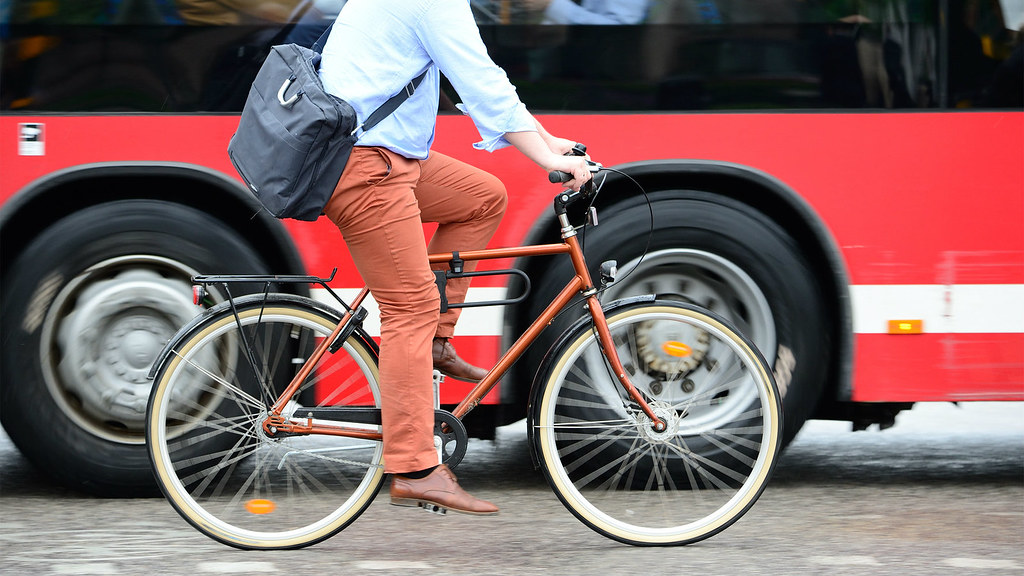In the report, published in the international journal Environment & Behavior, the researchers discuss how the impact of the office relocation for the WWF was aligned with a shift in commuting patterns and identify key lessons for other organisations hoping to achieve similar results.
Over a period of 19 months both before and after the office move, Dr Ian Walker, who specialises in transport choices and behaviour change, worked with graduate student Gregory Thomas and Professor Bas Verplanken to conduct a survey of over 200 WWF employees - nearly two-thirds of the organisation’s workforce.
The results revealed that the ‘disruption’ of the move proved the catalyst for many employees to change their transport options from driving in favour of more sustainable modes, including public transport, cycling or walking. But the study also showed for the first time that old commuting habits die hard - even for those who changed the way they travel, the 'urge' to use the old mode remained for some time. This suggests that without dedicated support in place for a period of time, any change in commuting pattern is likely to be short-lived as people are predisposed to revert to their old behaviours.
Dr Walker explains: “Immediately after the office move, many WWF employees were open to experimenting with new travel-to-work options. However, their tendency to use their old method of transport, which was usually the car, did not disappear abruptly. Rather, the old behaviour decayed slowly over several weeks, whilst concurrently, strength and support for their new commuting choice grew.
“In practice, this shows that capitalising on a disruptive event, such as an office relocation, can help workplaces encourage greener and potentially healthier travel options for employees. But encouraging people to change commuting habits requires continued support some time after the transition - you can't just have a one-off 'bike to work day' and expect long-lasting changes in how people travel. Without dedicated support over a substantial period of time, it is likely that people will slip back into taking the car.”
The study also highlighted that a main motivating factor for someone changing their travel behaviours was to do with infrastructure available, not necessarily an individual’s green credentials or aspirations to be more sustainable. The WWF relocation to Woking placed the organisation much closer to the town’s main railway station, which all fits with a growing body of research identifying that shifting commuter behaviour is mostly about infrastructure more than persuading people.
Dr Walker adds: “The presence of good public transport, or good cycle facilities, is a much better predictor of whether people will use public transport or cycle than what they think about it. At a political and organisational level, this means that we cannot just implore people to change how they travel. If we want people to travel more sustainably there has to be investments to make alternatives better and to make driving less easy and desirable.”
Because this study was carried out for the WWF, where employees are naturally more ‘green-minded’, the researchers warn that the report is a best-case scenario of what can be achieved in terms of changing commuting patterns. They highlight that given a quarter of all staff were still driving following the relocation, expectations for reducing car usage in other workplaces should be modest at best.
To access the paper, Old habits die hard : Travel habit formation and decay during an office relocation, see http://opus.bath.ac.uk/41989/.
Read Dr Ian Walker's piece on the topic for the Guardian's Sustainable Business 'If WWF employees still drive to work, is there hope for the rest of us?'
If you found this interesting, you might also enjoy reading:
- HIVE will become 'national asset' - September 2014
- Turning on nudge tactics to turn off our bad energy behaviour habits - March 2014
- Cyclists cannot stop drivers overtaking dangerously, research suggests - November 2013

